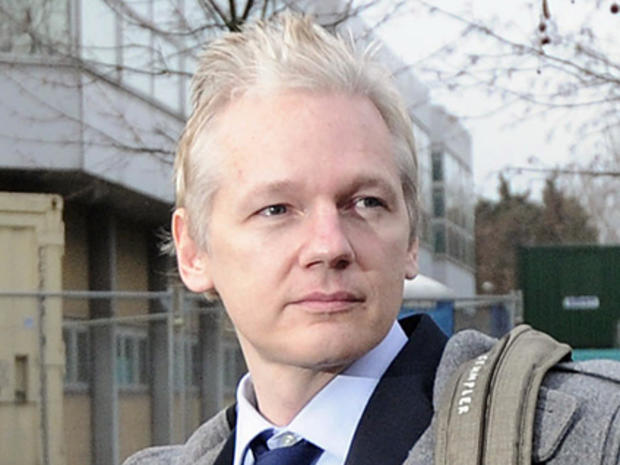NYT: WikiLeaks' Julian Assange is "Arrogant, Thin-Skinned, Conspiratorial"
The source "acted like a fugitive, changing crash pads, e-mail addresses and cellphones frequently." He was difficult to pin down, even had a "Peter Pan"-like air about him at times and was prone to fits of grandeur.
But the story was huge, so the New York Times swallowed its distaste and mistrust and moved on to work closely with WikiLeaks founder Julian Assange for a time. Together, they became part of one of the biggest news stories of the decade thus far.
Times Executive Editor Bill Keller admits in his introduction to the paper's upcoming e-book on WikiLeaks that the story about Assange and WikiLeaks itself has often been bigger in the media than the story about the content of what they were actually leaking.
In a nearly 10,000-word piece in their Sunday magazine, Keller discusses in-depth the story of WikiLeaks and Assange, focusing on the Times' involvement from beginning to present day.
Keller said the Times was brought into the WikiLeaks story by his counterpart at the Guardian, a British daily, last summer. They quickly dispatched some of their best reporters and investigators to London to study the material and meet Assange.
Special Report: WikiLeaks
Preview of Julian Assange's 60 Minutes Interview on CBS
"He was alert but disheveled, like a bag lady walking in off the street, wearing a dingy, light-colored sport coat and cargo pants, dirty white shirt, beat-up sneakers and filthy white socks that collapsed around his ankles. He smelled as if he hadn't bathed in days," a reporter wrote to Keller upon first meeting Assange.
First impressions were not improved upon. After working with Assange to go through the initial material about the Iraq and Afghanistan wars, Times reporters came to believe he was smart and tech-savvy, but "arrogant, thin-skinned, conspiratorial and oddly credulous."
In an interview with the Daily Beast's Howard Kurtz, Keller said he believed Assange doesn't understand "in his gut how journalistic organizations work, particularly American journalistic organizations. Julian tended to see American news organizations as not observers but as actors and advocates."
Ultimately, the mistrust between the two sides boiled over after the Times ran an unflattering portrait of Assange on its front page. Keller said that, combined with the Times' open disregard for some of Assange's rules of cooperation, ultimately led to a souring of their relationship.
When WikiLeaks released its second trove of classified U.S. diplomatic documents late last year - CableGate - the Times was cut out as a direct partner.
Working with their European counterparts who still had a relationship with Assange, the Times found itself heavily involved with the WikiLeaks CableGate story, Keller said.
The paper's access to U.S. government officials and resources proved a big bonus for the other news organizations involved. Keller claims that WikiLeaks ended up taking many of the Times' suggestions for document redactions to protect lives and prevent unnecessary detention of U.S. cooperators abroad.
In the end, however, no matter what good Assange's work may have done for the world at large, Keller said he remains a questionable character.
Keller writes: "As for our relationship with WikiLeaks, Julian Assange has been heard to boast that he served as a kind of puppet master, recruiting several news organizations, forcing them to work in concert and choreographing their work. This is characteristic braggadocio -- or, as my Guardian colleagues would say, bollocks."
